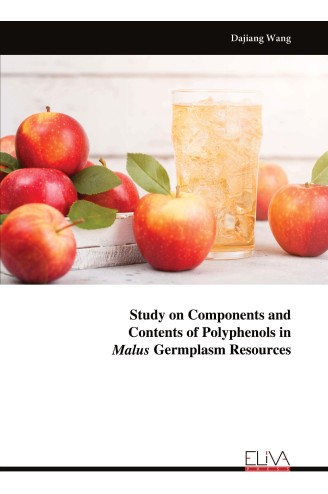Description
Leave review
Description
The apple is a deciduous tree of Malus in the Rosaceae family and one of the four largest sources of fruit in the world. Apple polyphenols have significant antioxidant capacity and play an important role in preventing food deterioration and improving food quality and shelf life. The polyphenol components and contents of apples vary greatly according to variety, tissue, growing environment, and maturity. Different kinds of Malus germplasm resources fruits and different stages of development of fruits were used as test materials to determine the polyphenol components and contents of the fruit peel and pulp using ultra-high-phase chromatography (UPLC) and liquid chromatography–mass spectrometry (LC-MS). A total of 34 components were detected in the peel and 30 in the pulp of Malus fruits. The polyphenol content of Malus sieversii (Led.) Roem. was significantly higher than that of the other local varieties. The apple landraces of North China, which should have undergone more artificial selection than those of Northwest China and Northeast China, are used as table fruit, or as parents for breeding table varieties with high polyphenolic concentrations. Based on the components and contents of polyphenol components, this paper supports the viewpoint that Malus neidzwetzkyana (Dieck) Langenf is a separate species to Malus sieversii (Led.) Roem. These results provide us with information regarding the polyphenol composition and content of the wild apple resources and local cultivars.
Co-authors: Kun Wang, Guanyi Wang, Yuan Gao, Xiang Lu, Zhao Liu, Simiao Sun, Hanxin Guo, Wei Shang, Lin Wang, Wen Tian, Zichen Li.




